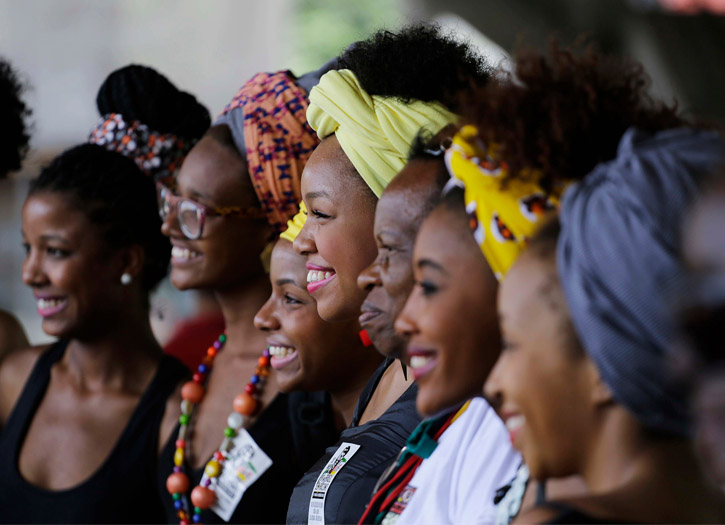African-American culture refers to the contributions of African Americans to the culture of the United States, either as part of or distinct from mainstream American culture. The distinct identity of African-American culture is rooted in the historical experience of the African-American people, including the Middle Passage. The culture is both distinct and enormously influential on American and global worldwide culture as a whole.
African-American culture is rooted in the blend between the native African cultures of West Africa and Central Africa and the European culture that has influenced and modified its development in the American South. Understanding its identity within the culture of the United States, that is, in the anthropological sense, conscious of its origins as largely a blend of West and Central African cultures. Although slavery greatly restricted the ability for Africans to practice their original cultural traditions, many practices, values, and beliefs survived, and over time have modified and/or blended with European cultures and other cultures such as that of Native Americans.
African-American identity was established during the period of slavery, producing a dynamic culture that has had and continues to have a profound impact on American culture as a whole, as well as that of the broader world. Elaborate rituals and ceremonies were a significant part of African-Americans’ ancestral culture. Many West African societies traditionally believed that spirits dwelled in their surrounding nature. From this disposition, they treated their environment with mindful care. They also generally believed that a spiritual life source existed after death and that ancestors in this spiritual realm could then mediate between the supreme Creator and the living. Honor and prayer were displayed to these “ancient ones”, the spirit of that past. West Africans also believed in spiritual possession.
At the beginning of the 18th century, Christianity began to spread across North Africa; this shift in religion began displacing traditional spiritual practices from Africa. The enslaved Africans brought this complex religious dynamic within their culture to America. This fusion of traditional beliefs from Africa with Christianity provided a commonplace for those practicing religion in Africa and America. After emancipation, unique African-American traditions have continued to flourish, as distinctive traditions or radical innovations in music, art, literature, religion, cuisine, and other fields. 20th-century sociologists, such as Gunnar Myrdal, believed that African-Americans had lost most of their cultural ties with Africa.
But, anthropological field research by Melville Herskovits and others demonstrated that there has been a continuum of African traditions among Africans of the diaspora. The greatest influence of African cultural practices on European culture is found below the Mason-Dixon line in the South. For many years African-American culture developed separately from American culture, both because of slavery and the persistence of racial discrimination in America, as well as African-American slave descendants’ desire to create and maintain their own traditions. Today, African-American culture has influenced American culture and yet still remains a distinct cultural body.







Add Comment